My recent article on the motto “Fed is Best” got a few people up-in-arms over the supposed lack of support it demonstrates for people who formula feed. (I found this particularly amusing as I actually believe they should be more offended by the message that compares what they feed their child to the bare minimum you can do as a parent, but that’s a topic for another day.) In this, I was once again privy to discussions about how lactivists and lactivism are so awful for everyone and this seems to hold especially true for those who dedicate their lives to helping women breastfeed: the Lactation Consultant.
Here’s the problem:
In this ongoing dialogue of how bad “some” lactivists or Lactation Consultants (LCs) are, people use a lot of rhetoric about shaming, judgement, and negative messages and they do so without any qualifiers or specifics. I see major organizations support the view that lactivism is filled with negative messages and pushy LCs, yet nowhere does anyone explicitly talk about what these people are actually doing that is so bad. No one talks about specifics that happened to them that allows others to understand what is meant when we say there are people – in fact, entire movements – working against them or trying to shame them. The closest I’ve ever seen is “I was bullied into breastfeeding at the hospital by my LC.” No definition of what constituted “bullying” or “shaming”. Nothing to help us understand whether or not the other person’s actions were driven by the supposed “breastfeeding at all costs” attitude, or simply just a lack of knowledge or professionalism.
Details are critical. Not only do they allow the rest of us to comprehend the situation in its entirety, but if there was shaming or bullying going on, it allows us to work towards addressing a problem. If there wasn’t? Then it could allow for discussion of why a person may have felt that way, even if there was no objective shaming or judging or bullying going on.
I asked some mothers for their experiences with Lactation Consultants specifically (as this group is often targeted by anti-lactivists) and one mother shared the following experience:
After a difficult birth and 10 days in the hospital, I had great difficulty nursing. It was something important to me so I did everything I could on my own before hiring a board certified lactation consultant. I paid an obscene amount of money to have her come to my home. She said I just wasn’t doing enough. I needed to put my baby on my breast and then pump after every 2 hours. I used the contraption to supplement while putting my daughter on the breast. After three weeks of this I was on the verge of a nervous breakdown. My sister-in-law came for a visit and I was crying to her. She had 5 babies. She pulled up my shirt and started checking out my breasts. She said she didn’t think I was producing. Although I have average-to-larger size breasts she thought I may be lacking actual glandular tissue. I booked a doctor appointment the following day and the nurse practitioner confirmed I have IGT. The lactation consultant didn’t even properly examine me. I was furious and I spent almost 4 weeks torturing myself and my baby. P.S. The LCs in the hospital were great: Clear education, love and hugs, no pressure.
To me, this story highlights so much. For the anti-lactivist, it’s an example of the “breastfeeding at all costs” attitude and would likely be deemed “shaming” or “bullying”. For others (including other LCs who heard the story), it’s an example of someone who is poorly trained or not doing their job and sadly exists in every single profession (even medical professions). It isn’t malicious or an attempt to “shame” formula feeders, but rather an example of someone who either needs more education or who shouldn’t be doing this particular job. The problem with the former view (i.e., that of this person just shaming) is that the only way to fix it isn’t through education on breastfeeding, but by someone who should have said “You can switch to formula” earlier.
Why is this “switch to formula” answer a problem? Because in this case, the mother deserved to know what was going on. She has the right to know she has IGT to help her process the loss of the breastfeeding relationship she wanted and any future breastfeeding relationships (IGT doesn’t magically go away, though some women with IGT will be able to have a mixed feeding relationship, but this also requires the knowledge of one’s condition). Knowing you have a medical condition that means you won’t breastfeed is crucial to prepare for any subsequent pregnancy. Yet without someone checking this and instead having someone just parade formula in front of someone and tell them not to feel guilty, these checks can often be missed and women who want to breastfeed end up either missing out on breastfeeding altogether (what if it wasn’t IGT?) or not having complete information about their bodies.
Why does this really matter? I mean, if it’s just about individual experiences, can we not let it slide and allow women to rant about the “big, bad lactivist”?
It matters because we now have tons of people who make the erroneous assumption any and all lactivists are bad (unless said lactivist is promoted by certain people who are generally pro-formula and that only happens when any discussion of breastfeeding is so tempered and watered-down to cater to the formula feeder or the failed breastfeeder that it does virtually nothing for the women who need an advocate on their breastfeeding journey). People assume that by being a lactivist, one is inherently judgmental and anti-formula.
Some have argued that there must be truth to this because there are so many terms floating around about how back lactivists and many LCs are. To that, all I can say is that if you believe that, you must also believe that there was something inherently wrong with the Jewish population in Germany in the 1940s, or the African American population in the USA during the 19th century and early 20th century (in fact, that still stands today, sadly), or feminists in many parts of the world. For all these groups have many, many derogatory terms that are floating around about them despite the fact that I find it hard to believe the problem lies with them instead of those who use the terms. In fact, have you noticed that when a group is so truly terrible, we don’t need to come up with names for them? Their name actually suffices to make it clear how bad they are/were. Nazi, ISIS, the Taliban… we don’t come up with additional derogatory terms for them because we don’t need to as their name says it all.
This problem of the “big, bad lactivist” stereotype means that many things that should be allowed in civil discourse are being censored to avoid being targeted as a part of this group. You can’t discuss research without people jumping on about how you must be shaming formula users. I have seen people suggest that using the term “risks associated with formula” is shaming and that we can only discuss the “benefits” of breastfeeding despite the scientific issue that the baseline comparison when doing any comparative research should always be the normal state of affairs. In medical research, it means the baseline is the normal biological state or the commonly used medicine or common treatment or whatever else serves as the most logical baseline. There’s no “shaming”, but rather the scientific way to discuss research. (Notably, much research does talk about the “benefits” of breastfeeding because formula has been so normalized in our society that from a societal perspective, it is the norm, not the exception and constitutes the largest groups in the research. Yet in medical literature that is not the way it should be discussed and some researchers are taking note and using a biological framework for their discussions on infant feeding. They are not shaming, but rather following scientific guidelines for discussion.)
People have also decided that the only benchmark for a shaming and judgemental lactivists is their own reaction to what is being said or read. Although that reaction is valid for them, it does not mean they were shamed or judged negatively by another, and it definitely does not mean those other individuals deserve vilifying. Returning to the story above, does that particular LC deserve to be vilified as a “breastfeeding nazi”? Or would it be more appropriate to call her out for unprofessional behaviour? What about those who simply are sharing information that someone may not want to hear? Their response to that may be very negative and thus their feelings are valid, but the person sharing the information deserves no reproach at all.
There are two conflicting messages that I often see paraded around. The first is the famous quote, “No one can make you feel inferior without your consent” (attributed to Eleanor Roosevelt) which has often been used to point out that many times when people claim they were “shamed”, there is likely an element of their own emotions kicking in. As pointed out in a great piece which is currently offline because people’s offense to it meant the author faced a personal and professional attack, the mere fact that two people who formula fed can hear or read exactly the same thing and one sees it as an attack or shaming and the other doesn’t speaks volumes about how our own experiences play into our reactions to situations and information. These experiences also play into how we approach our situations and the people we seek for help; that is, if we allow our experiences to lead us to negatively stereotype all lactivists, we won’t seek out help from anyone even remotely affiliated with that term, but if we view an experience (or information) as being stand-alone (or simply information), we are more likely to be open to meeting those who are part of the same “lactivist” group. And this is really, really important.
Take the following stories from women who had negative experiences with certain individuals who were supposed to help them breastfeed:
I had a horrible experience with one at the hospital after the birth of my first. She told me my baby was crying because he was starving. After that I couldn’t regain composure. I was sobbing the entire time. She was condescending and mean. When my husband left the room to shoo away visitors, she asked if there were other reasons why I was crying, as she looked in my husband’s direction. I was sobbing so hard they I couldn’t even speak. It was much better with my second baby, I hired an outside LC.
The hospital “lactation consultant” shoved my baby’s face and handled him roughly, just making him cry (and fear nursing time). The private LCs I hired to fix the issue caused by the first one and other issues like shallow latch and low supply were amazingly supportive and helpful.
My experience is mixed. The consultants at the hospital where I delivered my first were bad. They tried to physically push him to latch on and pry his mouth. I had to tell them to stop and that we will manage on our own (which we did until we got out of the hospital). The lactation consultant we hired when we got home (to confirm he was eating well and get tips and tricks) was phenomenal. She was always available if I had additional questions, helped us work through a nursing strike, and worked with me when I had my second, who had a tongue-tie and bad latch (she didn’t even jump to having it cut and we just worked through it until my second learned to latch better). She was amazing!
My son was born 8 weeks ago. The first LC that came to check on us the day he was born gave me a crash course in BF. It made me feel so overwhelmed and discouraged. The next day a different LC came to check on us and she was AMAZING. She really took the time to answer my questions and help me find solutions. I was still having a few issues with my little ones latch and all I had to do was walk down the hall to her office (they have their own office on the maternity level) and ask her for help! She came to my room 10 min later!
I’ve has good, bad and ugly…the good was my doula referring me to an IBCLC who finally recognized my daughter’s tongue and lip ties. The bad/ugly were all the IBCLCs and nurses I saw in the hospital immediately post-partum. They would frown and say “your daughter has a very bad latch” as though she brought home a failing report card at two days of age. Other gems included “You probably won’t be able to breastfeed. You can try, but I suspect it won’t work.” WHY?????? Did you even bother to examine my daughter? “She has a very high palate. She doesn’t have a tongue tie – she can definitely stick her tongue out” (PS only babies with extremely short anterior ties can’t protrude the tongue past the gumline; babies with posterior ties can stick their tongues OUT, they just can’t lift them UP, the critical motion required for nursing). Sigh. I also had IBCLCs who were La Leche League Leaders telling me it was OK “there’s no shame in giving up, mama…” But…I didn’t want to quit!!! I just wanted ANSWERS, and unfortunately very few highly trained lactation professionals were able to give me any. This is why, as an MD, I am retraining as a breastfeeding medicine specialist! Like any profession, there are great ones, not so great ones, it’s a mixed bag. There are bad doctors, bad teachers, bad police officers, but they aren’t vilified as a profession as much as lactation consultants are…I certainly never had any who pushed breastfeeding on me or tried to “guilt” me into breastfeeding. Sadly, quite the opposite.
These women don’t let the experience completely colour their take on LCs as evidenced by their ability to seek out help after. They don’t use the bad experience to provide evidence of a negative stereotype, but rather see it as one element and continue to seek support, finding it with others to great success. When we are able to not use individual situations as proof of an ingrained stereotype, we can often learn that things aren’t quite so black or white and we may even get the help and support we need or want.
The second quote, “When a person tells you that you hurt them, you don’t get to decide that you didn’t” (Louis C.K.) seems to take the opposite perspective. After all, if you have to acknowledge that you hurt someone, you have to fix it, right? That’s where I disagree. I think you absolutely have to if you have done something that reasonably can be seen as hurting someone. After all, learning to make amends is one of the lessons I take very seriously in my own life. However, sometimes people get hurt because of their own experiences and expectations and we cannot live our lives censoring ourselves entirely or apologizing for things that should not be seen as harmful. I acknowledge fully that this is a fine line to walk, but there are a few things that seem to stick out for me in this big, bad lactivist discussion as being relevant:
- Sharing information is something that shouldn’t be apologized for. If you don’t like the information being presented to you, research further to come to your own conclusions or ignore it or learn from it. Your choice, just don’t ask the other person to censor themselves.
- If someone isn’t speaking to you directly (e.g., it’s a research article or a blog post), be careful before accusing them of “hurting” you. You get a say in what you read and how you read it. There may be times when someone is trying to be hurtful, but these are obvious times and you shouldn’t have to discuss “reading between the lines” or “the gist of what you seem to be saying” in order to prove you were hurt or that this hurt was intentional.
- When one-on-one and someone discusses an alternative perspective to the one you believe, realize that this is not a personal knock at you. What I mean here is that someone (i.e., that evil LC) may talk to you about breastfeeding even if you have it in your head that you are going to formula feed. Talking to you about breastfeeding may be part of their job and asking them to not engage at all isn’t about not shaming, it’s asking them not to do their job or share their opinion. (Equally, if they then won’t listen to you, you have every right to be hurt and to call them out.)
- Disagreeing with someone is not shaming or judging or bullying. I flat-out disagree that formula is equivalent to breast milk, especially in terms of health. I can provide you information as to why I take this stance. What this doesn’t mean is that I extend this disagreement to the individuals (i.e., I am not saying formula feeding mothers aren’t equal to breastfeeding mothers) and nor do the vast majority of lactivists. They are able to talk about the products without talking about the people, yet we humans (especially mothers it seems) tend to take the messages as personal attacks. That’s our problem, not the person who is disagreeing.
I’m sure there are people that have encountered assholes (I’ve referred to this as the “asshole problem” elsewhere) and they should be calling these people out. Formula feeders should call out anyone that calls them names like “lazy” or “bad parent” (things I have read, but very, very, very rarely and I’m involved in a lot of feeding discussions, though I can’t speak to an individual’s experience that I haven’t been a part of). Breastfeeders should call out anyone that calls insults them by insinuating things like “trashy” or “immoral” or calling them “abusers” for nursing past a certain point or for nursing in public. All women should call out health care providers who do not listen to their concerns and thoughts on every issue and instead try to dictate what the mother should do from feeding to sleep and everything in between. Similarly, lactivists should call out anyone that calls them “breastfeeding Nazis” or the “breastapo” because comparing people who are working with women to help them reach their goals to a group of individuals who systematically tried to eliminate an entire race of people through some of the cruellest means we have seen in human history deserves to be called what it is: Stupid, ignorant, and incredibly inconsiderate for those who have family who lived through the Holocaust. (I have asked Jewish friends how they feel about these comparisons and it is unanimously viewed as abhorrent, at least by those I know.) (As an additional aside, I have recently been told the new derogatory term is “taliban titties”. So we’ve moved from people who endorsed genocide to terrorism. Not really much of a step up, is it? The same response holds for this one.)
I ask that people who are using this rhetoric and claiming lactivism hurts actually present some specifics here. Tell people what you think constitutes “bad” lactivism, why you think the Baby Friendly Initiative (which is only in 289 hospitals in the entire USA, which is home to over 5,600 hospitals) is somehow so awful compared to the pushing of formula done in many other facilities, what your specific experience was that causes you to think someone “shamed” or “bullied” you, and so on. In fact, with respect to the issue of Baby Friendly Hospitals, one of the things that comes out regularly is that they “push” breastfeeding so much, it’s akin to bullying. Yet when I asked mothers about their experiences, although many reported negative hospital experiences with respect to breastfeeding support, most (but not all) the women who reported these negative experiences were not in baby-friendly hospitals. The ones that were reported more positive experiences, like these:
I gave birth at Mission Hospital in Asheville, NC which is very mom centered and baby friendly. The LC that spoke with me at the hospital just explained basic breastfeeding techniques. It was short and sweet and she was nice about it. A few weeks later I contacted the hospital’s LC department and spoke with several LC’s about how my baby was screaming at the breast and throwing up a lot. They were very helpful and helped me realize that I was having an oversupply issue. It would have taken me a lot longer to figure out the problem had they not been willing to speak with me over the phone, especially since it’s hard to diagnose a problem without witnessing a feeding session. I ended up speaking with 2 or 3 different ones on different occasions and all 3 gave me similar advice and information, which was very reassuring. So overall my experience was great and they were extremely helpful!
I had an AMAZING LC in a baby friendly hospital. I was dead set on nursing no matter what. Baby’s latch was perfect. But what I loved about her was how much she involved dad! She talked him about how important skin to skin was, signs of ppd, how to help at night, to make sure I was eating etc. It really changed his whole view of helping and breastfeeding in general. I am 1000% more successful this time and I owe some of that success to her and a supportive SO.
When my babies were born, the LC came to me without me asking; I had just had a c section and was high on Mag and had t even thought about the fact that my babies needed to eat. She helped me numerous times while I tried pumping for my preemies and had everything I needed in house. I wish she had been more available to help me try nursing in the NICU, but that was a combination of scheduling issues and my hospital sent me s midwife who was very helpful. Once I got my son to latch, but I had issues with my daughter I saw a different LC who made me feel better about the issues and suggested a tongue tie clipping which fixed all of our issues. I’m not sure I would have started, no less made it to almost 2 years (on 9/13!) and counting, without the support of those two LCs and the LC department at my baby-friendly hospital.
It’s time to put to bed the myth of the big, bad lactivist because these people that do so much for women deserve better than that, and if you doubt that people are being helped by those who are being vilified, I ask you to read the following stories from real mothers about their experiences with their LCs. Hopefully after reading you can see how much these people help and why we need to end this stereotype while simultaneously addressing the specific issues that lead to the negative stories we do hear about. Lactivism isn’t about breastfeeding at all costs, it’s about helping women reach their goals of breastfeeding, often through a lot of work and support. It’s not easy, but that’s okay because there are wonderful people out there to help and hopefully changes in our society mean even more of them will be available to moms who need them.
If you’re in doubt about the lactation consultant, please read some of these stories to see how helpful they can be for women who are looking for assistance, then think twice before calling them names and decrying what they do on a global scale:
I managed to get through my bf troubles with my first child just by reading LLL posts and Kellymom. However, this time round I sought help from an LC. My daughter is 3 weeks old and was just discharged from the NICU. She was able to latch and feed right after she was born but once she was taken to the NICU she was not allowed to have any breast milk for four days. We attempted to breastfeed once it was ok. It was very stressful trying to breastfeed in the NICU and since her discharged was based on her milk intake and weight gain I became very stressed and decided to stop until we came home together. She came home last Saturday. I went to a bf support meeting yesterday with an LC and my baby latched on and fed from both sides. The LC provided me with some very useful tips and reminded me that because she bottle fed it will take awhile to transition to the breast fully. It was a very happy day for both of us and I really do not think I could have done it without the LC. She is amazing. I’m going back to the meetings weekly and she do have me her cell number if I have any questions. She also offered to meet with us individually if we need it. On top of all of this the services are free. I am just very grateful for the chance to meet her and how much she was able to help in just one meeting.
I had a great experience with the lactation consultant I saw through my city’s public health unit. I was having difficulty in getting my son to latch on my right breast and with her help and showing me physically what I needed to change, he was able to start feeding much better on that side & the bruising & scabbing went away. She was a lifesaver and a big part in our establishing a great breastfeeding relationship.
I had a fabulous lactation consultant! My baby would just cry and cry and I would keep trying sitting in her office topless sweating because my baby just cried!! She commended me on my patience (that I swear was the result of hormones because before that I had zero patience). She worked diligently to find a position to latch baby best. She offered valuable education and never once told me it was my fault. I saw her daily for almost 2 weeks. Without her I wouldn’t have breastfed all four of my children. Between her and the paediatrician that referred me to her I was supported and encouraged not boobytrapped. I even sent her a thank you card after the birth of my second child. By then I had heard so many stories from friends that were similar to mine and all of them were told you’re not making milk, you have to supplement or your baby will die etc. Best experience for my breastfeeding journey.
I worked with the LC that worked at our base hospital, and she was awesome. She always called to follow up on issues. When I had to have an emergency appendectomy, she saw my name in the surgery roster and immediately called my surgeon to verify the meds I was going to receive. She also stopped by to check on me in recovery and followed up by phone a few days later. None of my care providers have ever been as attentive as she was.
I never would have been able to breastfeed for two years without the LCs at evergreen hospital in Washington. And Seattle Children’s critical care nurses. My son had a cleft lip, doctor’s told me I may not be able to at all. We did within an hour of birth, six months with an open cleft, and the night of his repair while he was swollen with stitches. I had a six month goal when I became a mother. The empowerment that those women gave me was life changing. The evergreen ladies helped me from birth to the mastitis I got while weaning. They never ever made me doubt my supply and suggested weighted feeds, when doctors suggested things like formula for weight gain. When I had over supply and couldn’t respond to pumps…they were there for that too. We also had some classes at that hospital that were very encouraging and knowledgeable. They weren’t all certified LCs but they were very up to date on statistics. Evergreen just got an award for being bf friendly. Love those women.
If you’re looking for some help or books on breastfeeding, I recommend the following (clicking on the link will take you to your local Amazon and a small portion of any purchase will go to EP):

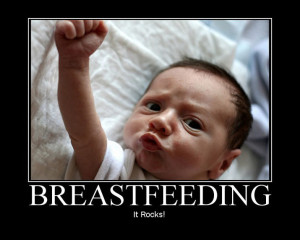
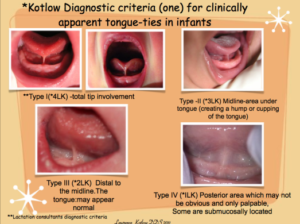
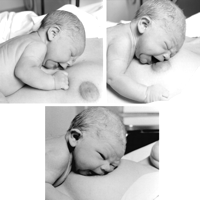

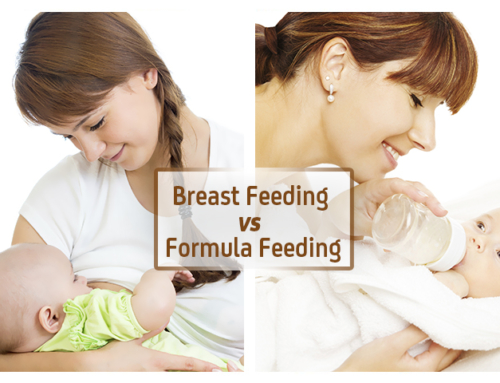

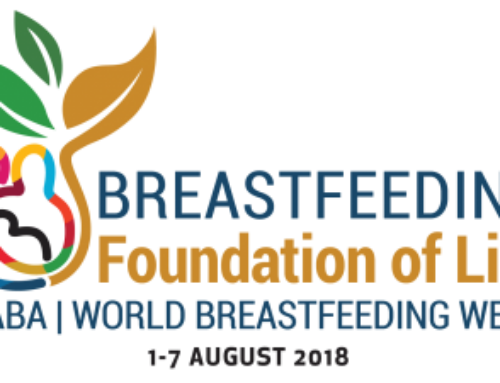
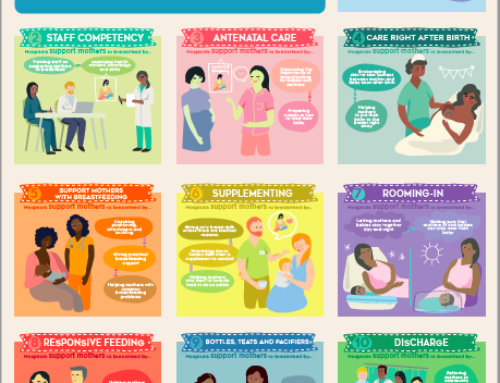
So a lot of thos is opiniated. So if the patient perceives something differe t than the care giver, the patient is wrong? That is not what the majority of hospital managers snd attorneys will say. Ask the African American community something like that.
Some moms love the idea that an LC comes right yo them without asking. Othes don’t. I had twins via a c section and was throwing up. I had no problem with the fact that my husband was feeding my babies formula, my babies needed to eat snd if I was vomiting how was I supposed to feed them?
I feel like this author simply defended every LC. Her statements about all arebt bad and sone shouldn’t be in the field, well that applies to every profession. Abd while sone many not be against formula, sone be far give the opinion that they are, just look at their so ill media page about bad formula is or how impatient mothers are who formula feed. More facts, less opinions please
Hoo boy. Having a baby is a very emotional experience, as is feeding that baby from one’s own body. If professionals can’t relay information to a new mom without taking this into account, it doesn’t matter whether you are “right”. That’s just not effective. I’m speaking as a scientist, though not in healthcare, with experience in public communication.
I’m also speaking as a new mom who landed on this page while Googling “lactation consultants useless”. The LC at the hospital was trying to have me latch a baby with cleft palate. She was very down on letting me use the electric pump that I brought and was guiding to triple feed with a hand pump. If it is too difficult to learn to use different models, eventhough most are very similar with interchangeable parts, then the hospital should have an electric pump that they DO know how to use. She was also saying that using a nipple shield, which was sort of working, not well enough really, should be temporary and I should slowly try weaning baby off of it. So the routine was 15-20 min feeding with the nipple shield, 15-20 minutes bottle feeding, 15-20 minutes keeping baby upright due to reflux, 10-15 minutes hand pumping, indeterminate time trying to nipple latch, every 2 hours all with staff coming in the room every 30-60 mins. You can guess how well that went! According to most resources that I’ve read afterwards, including LLL, and the advice given to me by my baby’s cleft care team, that is all absolutely NUTS! Most babies with cleft palate simply can’t generate enough suction to use a non-specialty bottle, let alone breastfeed. AND often need pumped breastmilk to be fortified with formula powder because eating and breathing are taking too much energy. Note this is different than cleft lip. Before being guided to EP by the cleft care team, baby lost more than 10% body weight.
I’ve heard from other women that thier LC’s, while helpful getting the most out of breastfeeding, are similarly latch at the nipple, 100 percent breastmilk only purists. And even after all of that, I am searching around the internet wondering whether I “gave up” and switched to EP too quickly instead of just being thankful EP is working and getting baby the most breastmilk possible. And also instead of focusing on spending quality time with baby. Because at night the voice in my head isn’t the Pediatrician or Dietitian or OT, it’s the LC saying not just that baby is not getting the full immunity benefits of “real” breastfeeding, which is true enough, but that I should therefore spend all of my time trying to move mountains and do something likely impossible.
Academic research can only say what causes the best outcome for MOST babies. Maybe even best for most babies under a SINGLE specific special circumstance that the researchers were able to test in a controled study. It cannot take all factors into consideration to recommend what is best for a SPECIFIC baby to thrive. THAT is what expert consultants should be able to do. Emphasis needs to be placed on recommendations that leave mom with peace of mind she on the right course for her baby in particular even understanding that might be different from other babies. And it sounds like THAT is where many LC’s are falling short and hence the reputation.